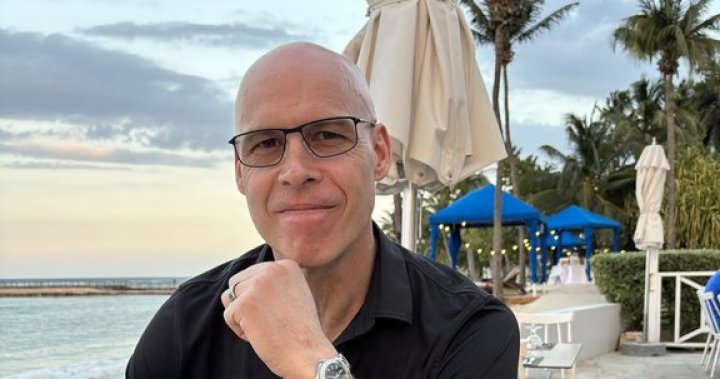After more than two months stuck in the Dominican Republic, David Bennett is finally back home in Ontario.
Although he is now physically free, he is still emotionally recovering from what he describes as a harrowing ordeal.
The 43-year-old was arrested on March 7 in Punta Cana after he and his wife, Jane Wilcox, say they were shown a yellow bag they didn’t recognize. The bag was labelled “Davi Bennett”, differing from his legal name David R. Bennett.
However, that similarity was enough for him to get flagged by authorities and held back at the airport for interrogation.
That moment marked the start of a weeks-long legal and bureaucratic nightmare for the couple.
Bennett says he knew from the moment he was detained that the situation would not be resolved quickly. “I just knew I wasn’t going home that day,” he told Global News. “I wasn’t prepared to stay there one day longer than I had to.”
Bennett described the initial transport to a holding compound as terrifying.
He explained how him and four others were crammed in a vehicle going at high speeds with no seat belts on. “We were crammed and handcuffed to one another, exceeding speeds of 130 kilometers an hour.” He recalled thinking “am I going to die?”
He said he was first taken to a holding compound where he was questioned and fingerprinted.
After roughly an hour at the compound, Bennett says they were taken back to the airport and left sitting in a parked vehicle with the windows cracked slightly open — and no air conditioning — for more than an hour.
“We started yelling that we couldn’t breathe,” he said. Eventually, the officers returned, started the engine, and let the air conditioning run.
Get breaking National news
For news impacting Canada and around the world, sign up for breaking news alerts delivered directly to you when they happen.
Bennett also says they were never formally fed during that whole process — only given two small Halloween-sized bags of chips to share among three people, along with bottles of water. He recalls that one of the chip bags was too spicy to eat.
Later that night, Bennett was transferred to another jail where he spent 48 hours in a crowded cell.
“I spent 48 hours in a facility with 15 men,” Bennett told Global News. “The jail had an open washroom that was disgusting.”
Bennett says the smell was overwhelming and that by morning, the cramped space held 15 people.
“There was no way I could sleep,” he said. “I sat in an upright position for eight or nine hours, just waiting for someone to sort this out.”
That day, authorities formally charged Bennett, accusing him of attempting to import drugs.
Although all criminal charges were eventually dropped after five weeks, it took another five before he was finally allowed to leave the country.
“I had this black cloud over my head the entire time I was there,” Bennett said.
Wilcox says the delays were a result of slow administrative processes and what their lawyer described to Global News as limited Canadian government intervention.
On Friday night, Bennett finally landed back in Toronto. He estimates the entire ordeal cost more than $80,000. Now, he says, the focus is on healing.
“I didn’t sleep well through this,” Bennett said. “I’ve always been a really sound sleeper. Sleep became a form of prison. Every time I went to bed, I dreaded the night because I knew I would wake up.”
Wilcox, who remained in Canada, spent hours daily supporting her husband through FaceTime and said the emotional toll was immense.
“We spent hours on FaceTime the last couple of weeks, hours and hours just trying to get through it together,” she said.
Bennett says the whole experience also messed up his sleep schedule. “I still feel fatigued every day by like mid to late day,” he said. “I go, ‘Wow, I’m ready for bed.’ That’s trauma.”
What was expected to be a misunderstanding quickly turned into a protracted and distressing legal standoff. Wilcox said she believed authorities would quickly realize they had the wrong person.
Working from Canada, Wilcox coordinated with legal teams and began lobbying Canadian government officials to intervene.
“I was expecting they would figure out they got the wrong guy quickly,” she said. “The communication was just horrible from the government. It was a series of misinformation.”
The couple is now focused on recovery and accountability. They say no one should be left in legal limbo abroad, especially after charges are dropped.
© 2025 Global News, a division of Corus Entertainment Inc.

